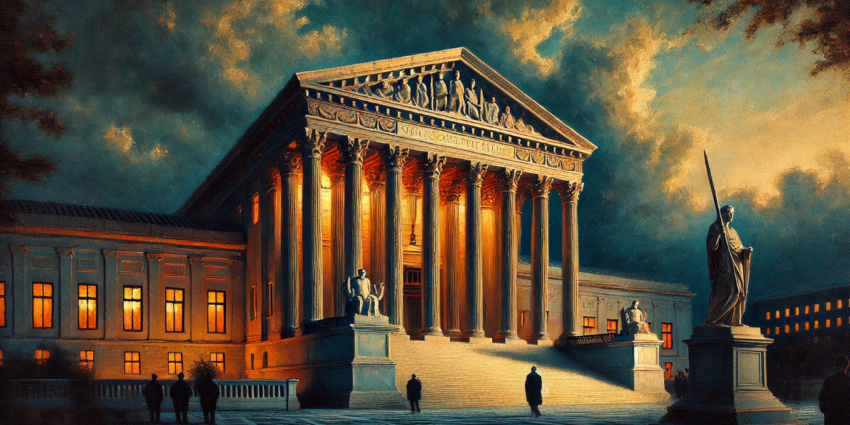| Listen to our audio presentation: History of the US Supreme Court |
On July 1, 2024, the U.S. Supreme Court issued a landmark ruling on the scope of presidential immunity in the case involving former President Donald Trump. The Court’s decision, delivered by Chief Justice John Roberts, has significant implications for Trump’s ongoing federal election subversion case.
The Supreme Court ruled 6–3 that presidents enjoy immunity from criminal prosecution for official acts performed during their tenure. However, the ruling clarified that this immunity does not extend to unofficial acts. The decision is expected to delay Trump’s trial in the federal election case in Washington.
Key Points of the Ruling:
Official vs. Unofficial Acts: The Court determined that a president has absolute immunity from prosecution for actions within their conclusive constitutional authority and at least presumptive immunity for all official acts. However, there is no immunity for unofficial acts.
Majority Opinion: Chief Justice John Roberts, joined by Justices Clarence Thomas, Samuel Alito, Neil Gorsuch, and Brett Kavanaugh, wrote the majority opinion. Justice Amy Coney Barrett concurred with parts of the opinion while issuing her own concurrence.
Dissenting Opinion: Justice Sonia Sotomayor penned a dissent, joined by Justices Ketanji Brown Jackson and Elena Kagan. Justice Jackson also issued a separate dissent.
Impact on the Trial: The decision remands the case to U.S. District Court Judge Tanya Chutkan, who must now make critical decisions about which charges and evidence special counsel Jack Smith can use against Trump. This ruling makes a trial before the next presidential election highly unlikely.
Next Steps in the Case:
Judge Chutkan faces significant decisions following the Supreme Court’s ruling. She must determine which of Trump’s actions are considered official and thus protected by immunity. This involves separating immune official acts from unofficial acts, which will require detailed evidentiary hearings.
Special counsel Jack Smith may opt to streamline the indictment, potentially excising some of the material deemed off-limits by the Supreme Court. Key elements of the case, such as the alleged scheme to convene fake electors, remain under scrutiny.
Trump’s Response:
Former President Trump celebrated the ruling on TruthSocial, stating, “BIG WIN FOR OUR CONSTITUTION AND DEMOCRACY. PROUD TO BE AN AMERICAN!”
The Supreme Court’s decision underscores the complexity of balancing presidential immunity with accountability. As the case proceeds in the lower courts, the legal and political ramifications will continue to unfold, especially as the next presidential election approaches.
Resources:
US Supreme Court: 23-939 Trump v. United States (07/01/2024)
Epoch Times: Supreme Court Rules Trump Has Some Immunity in Federal Election Case
Politico: What’s Next for Trump’s Federal Election Subversion Case

